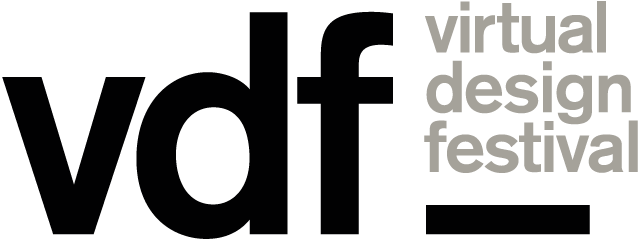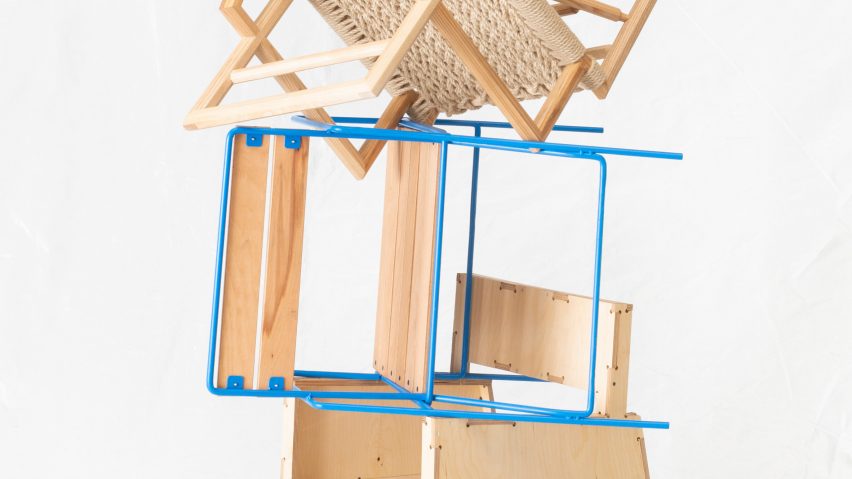
Sammlung Walter is not interested in "objectifying" its products
In an interview published here as part of VDF x Alcova, German siblings Merle and Till Richter of Sammlung Walter spoke about how they see their fashion and furniture pieces less like products and more like experiments in the "art of fabrication".
"We see Sammlung Walter as a Gesamtkunstwerk, a universe of possibilities for ourselves as designers that leaves space for others to share and transform the work into alternative directions without limitations," said the duo.
The studio, founded by Merle and Till Richter in 2018, creates three versions of each of its pieces based on three different processes – industrial mass manufacturing, slow craft production and DIY, which opens up the design to the wider public via open-source blueprints.
"We are less interested in objectifying our products than in using them as entry points to a larger discussion," they explained.
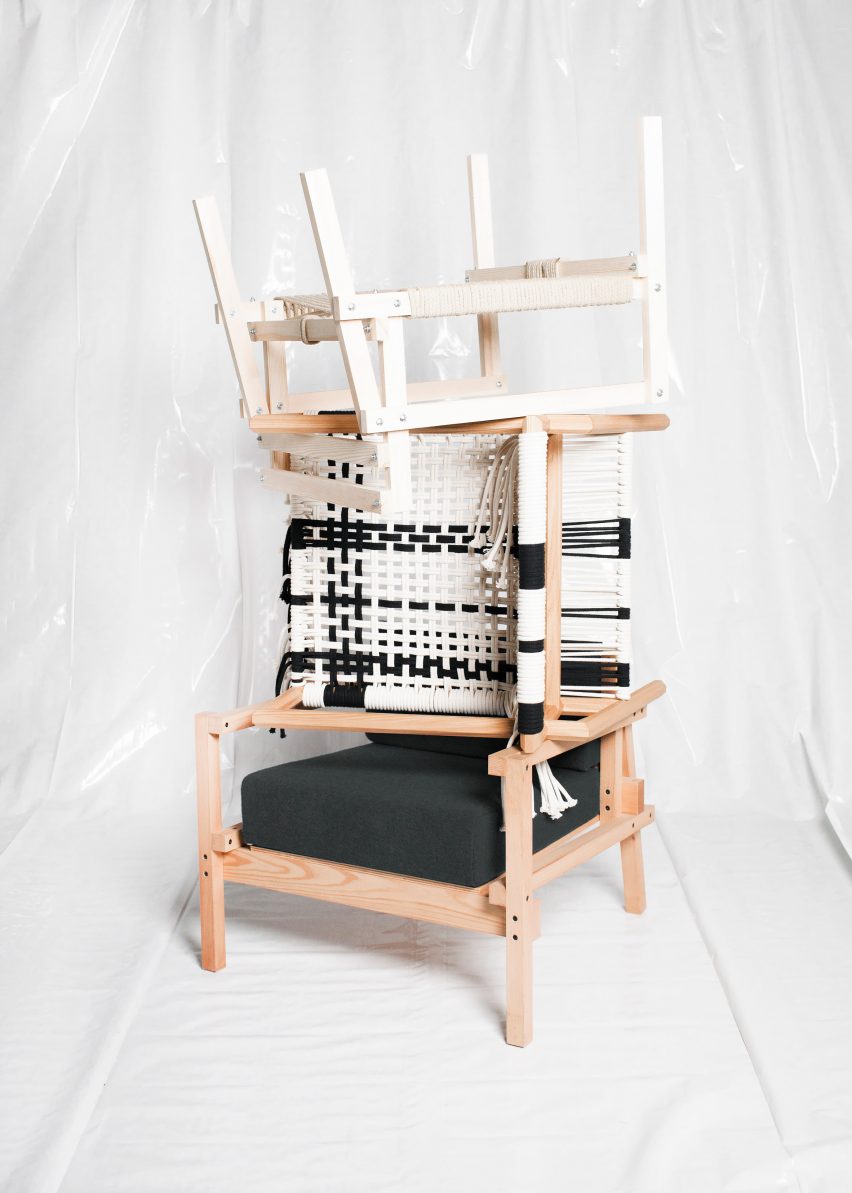
In this way, Sammlung Walter's work also represents a conversation between different design disciplines, with Till trained in carpentry and Merle in textiles.
Despite the hands-on exploration at the heart of this process, the Berlin and Hamburg-based studio is also heavily reliant on digital communication both in the design process and in the way it ultimately presents its products without a showroom.
The Alcova exhibition during this year's Salone del Mobile was set to be only the studio's second physical showcase. But with the fair suspended until 2021, the designers have joined the Alcova team for an interview instead, to share their thoughts on representing work in a virtual space.
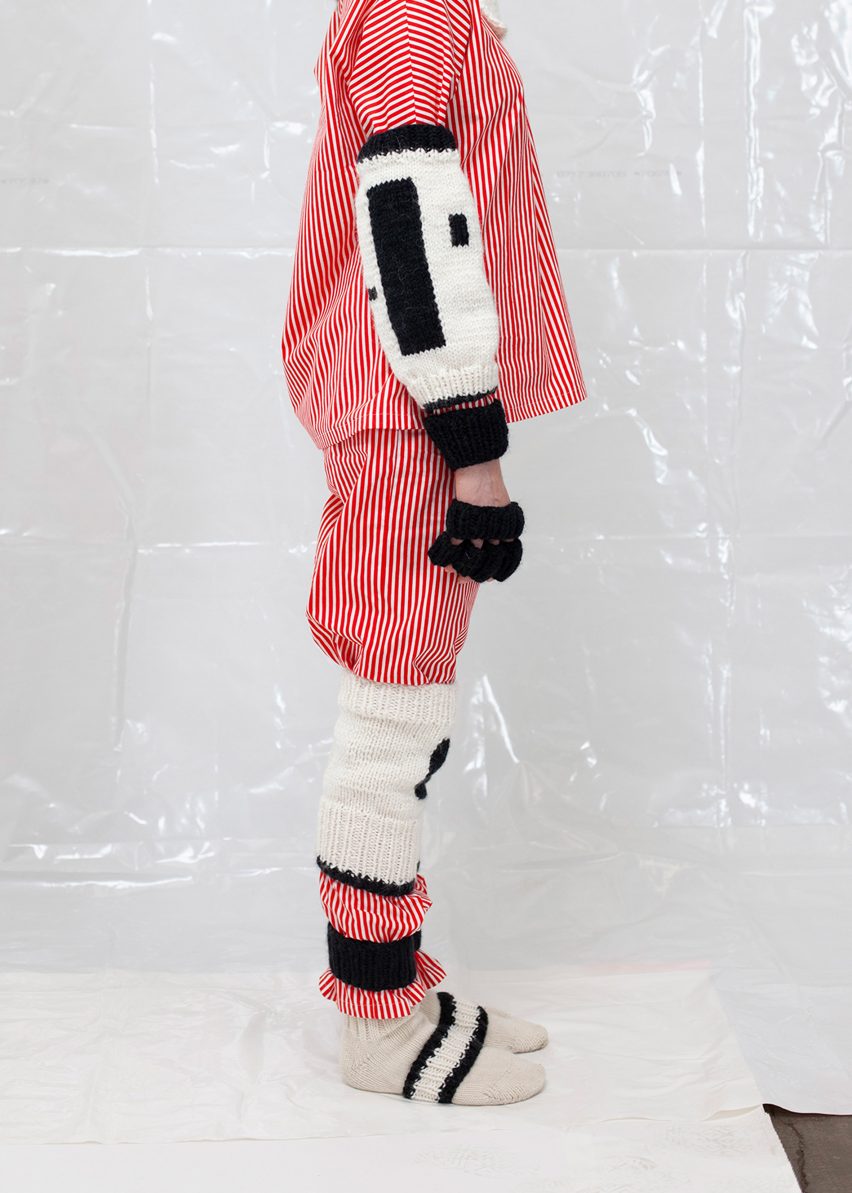
VDF x Alcova
Exhibitor: Sammlung Walter
Website: sammlungwalter.de
Email: [email protected]
Alcova: Can you explain your studio concept?
Sammlung Walter: With Sammlung Walter, we want to explore how things are made, to think about their value whether they are industrially produced, expertly crafted or DIY, whether they are made for sale or as private commissions and how they construct different conditions of collaboration.
We always start from the problem of having a desired outcome but not knowing precisely how to get there or how to choose between multiple typologies of process. We explore this “art of fabrication” through two primary frameworks. The first focuses on our editions and products in three variations – DIY, industrial, and craft – and allows us to experiment with different techniques, which we can then offer to the public through our online shop.
The second is more like a lab for our projects – such as interior design for events or fabrication for artists – and for research into topics like sustainability. There is a lot of diversity in the way we work, but all of these approaches are fundamentally related and coexist in everything we do. Through that lens, we hope to encourage people to become involved in different ways.
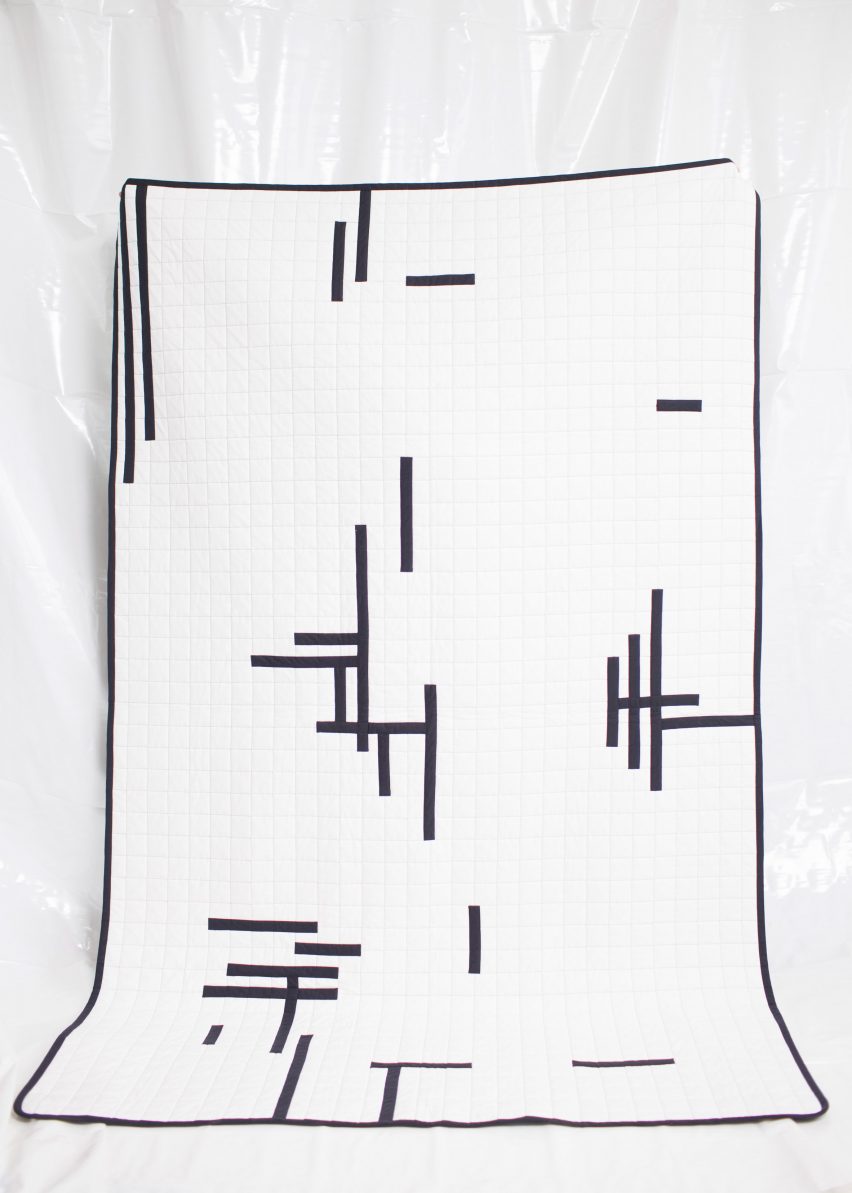
Alcova: When you are starting a new project, how do you define these three variations – DIY, industrial or craft?
Sammlung Walter: We always start from a topic that interests us, which usually leads to a certain technique so we often explore the industrial version first. The DIY version has to translate that technique into something which is practical and understandable as an instruction set, while the craft version can explore the most intricate possibilities of the same technique.
However, the boundaries between these three modes are fluid and can be hard to pinpoint. For example, some craft pieces are entirely handmade, while others use complex CNC machinery – for us craft simply means not compromising on how something is made for the sake of practicality, even if you have 10 times as many surfaces to sand or if it takes many more hours to knit by hand than by machine.
In the industrial version, of course, the design needs to make efficient use of automated or mechanical tools as well as the logistics of packaging and assembly; and the DIY design should guide a learning exercise without being too complex or time-consuming.
The fundamental questions are, "What can I handle? Which tools can I employ? What is important about this way of producing?" We try to leave open the end result to allow ourselves space for further development – for example, to compare the value of hand-knitting versus machine-knitting on a material level firsthand, or to co-produce our pieces with other manufacturers and artists.
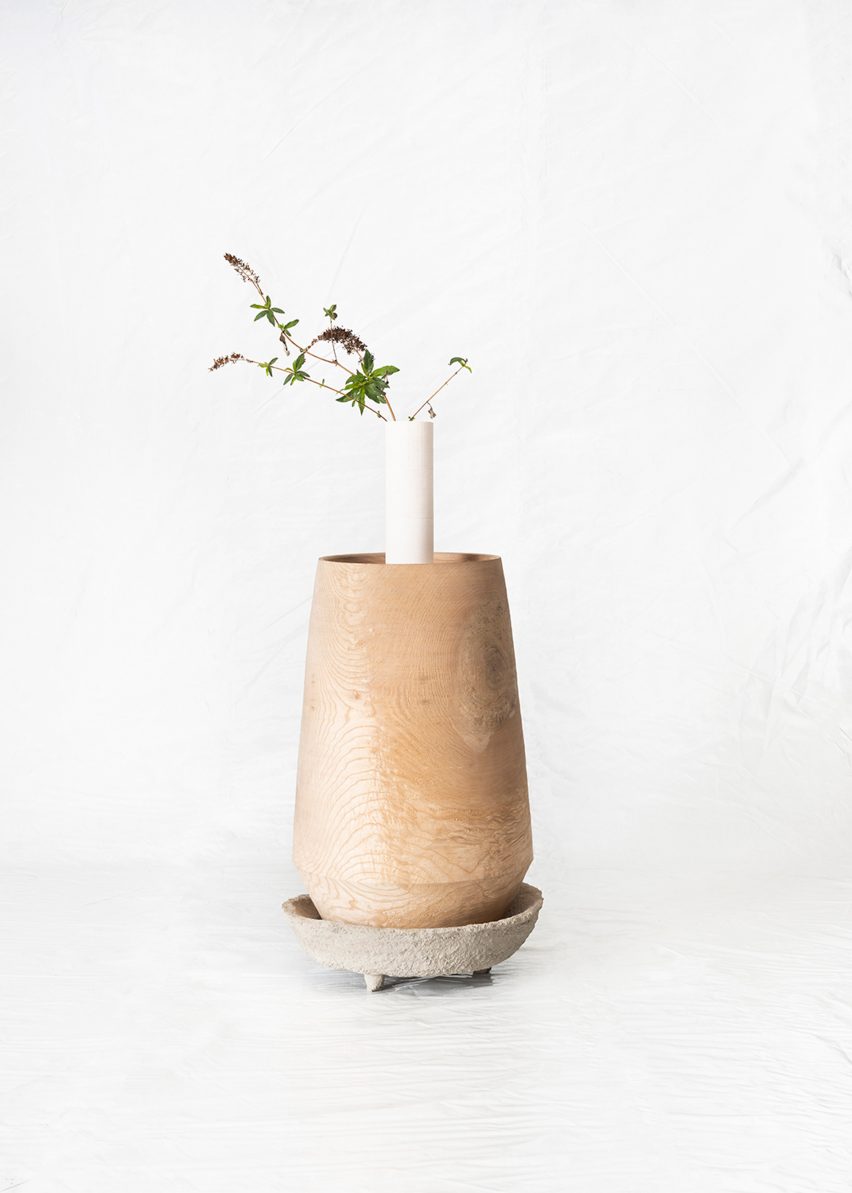
Alcova: What aspects of your working model enable you to handle this diversity of projects?
Sammlung Walter: We began by bringing together different knowledge. Till studied carpentry and social design and Merle studied integrated design with a focus on textile and fashion. Generally, there is not much collaboration between product design and fashion design, as the industries and techniques are quite separate.
Our motivation to work together is not about literally combining the two disciplines in each product, but about growing our network, sparking discussion, and expanding our skill set so that Sammlung Walter can handle any kind of process that emerges from our research topics.
Because we live in different cities, we are in contact mainly through online channels for discussion and digital work, while we try to explore the physical production as much as possible through Till's workshop, which has facilities for many different materials from wood and metal to ceramics, including advanced technologies. The workshop is shared with other designers from different backgrounds, so we can consult the expertise of, say, a jeweller or an electrician over a coffee and directly apply the range of knowledge from our whole network.
Alcova: How do you use different forms of communication to introduce your work to the public?
Sammlung Walter: Our main goal is to connect to people, to start conversations or collaborations with them. We are primarily focused on visual communication because we don’t have a showroom –the first time we brought together our products as a physical collection was last year at Salone Satellite and this year at Alcova would have been the second time.
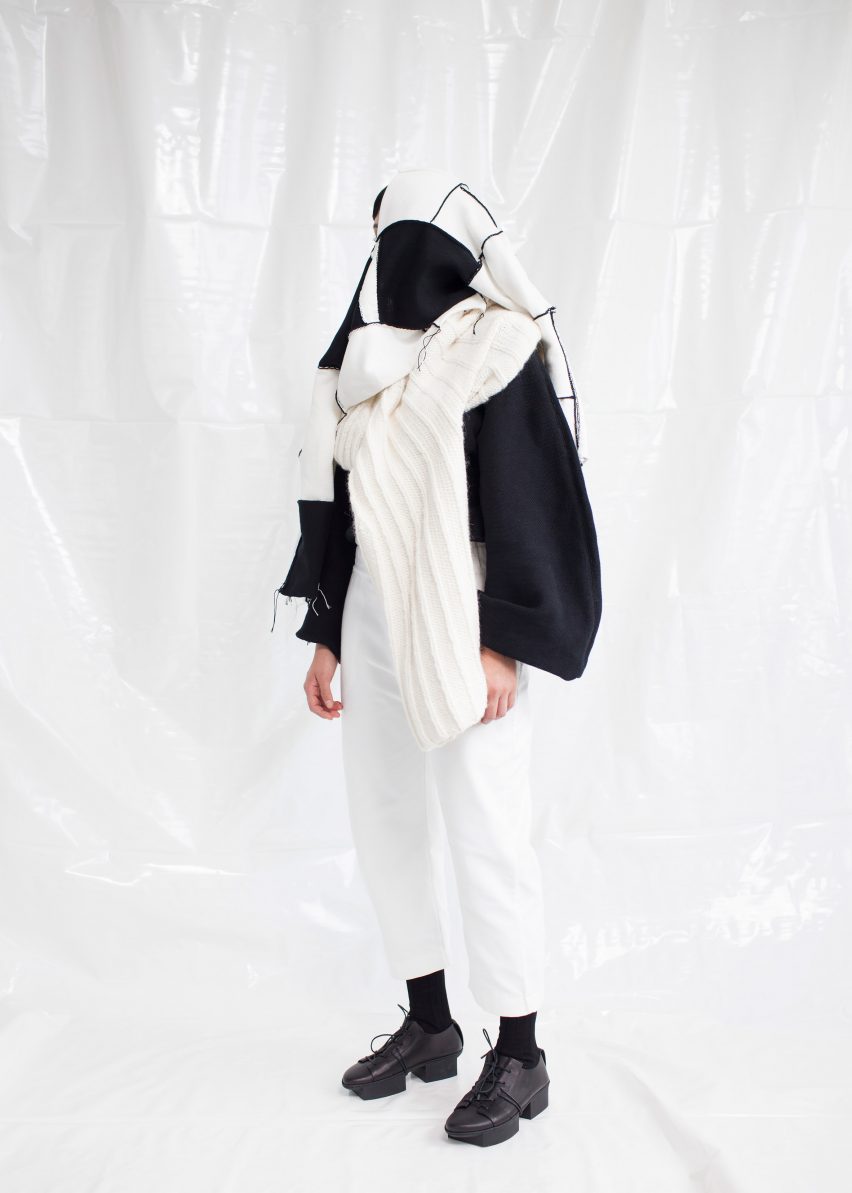
We see our website as a map of our research and methods and it is designed to show the range of our work with even more transparency. We always reflect on the way we present, because websites and exhibitions have an enormous influence on what viewers see in our work.
We are less interested in objectifying our products than in using them as entry points to a larger discussion. For example, we create the free DIY instructions as generic blueprints that quickly convey the main concepts to an amateur and allow them to modify the final design to their own circumstances and wishes. We also work with photographers to give new interpretations to our existing products or use design as an intersection between artworks and social gatherings.
We see Sammlung Walter as a Gesamtkunstwerk, a universe of possibilities for ourselves as designers that leaves space for others to share and transform the work into alternative directions without limitations.
Virtual Design Festival is the world's first online design festival, taking place on Dezeen from 15 April to 10 July 2020.
Alcova is a Milan-based platform established by Italian practices Space Caviar and Studio Vedèt, which champions independent design through a programme of exhibitions. The team consists of
Valentina Ciuffi, Joseph Grima, Martina Muzi, Tamar Shafrir and Marco De Amicis.
The VDF x Alcova collaboration presents interviews with eight studios that were set to be featured at the platform's presentation during Salone del Mobile this year.
